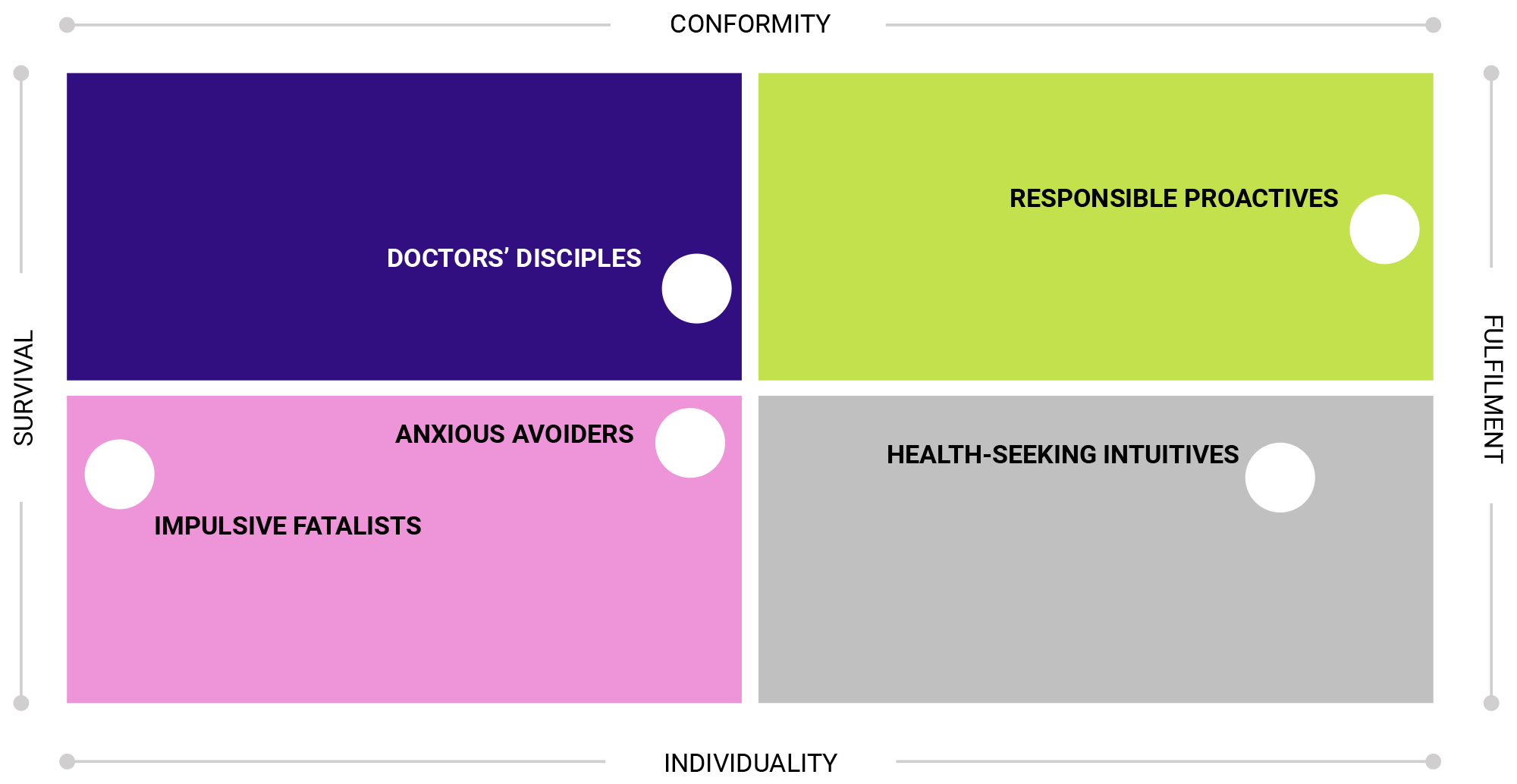
What Flu Shot Behaviour Tells Us About Canadians’ Likely Response To A COVID-19 Vaccine
ARTICLE
BY Vijay Wadhawan
Public health communications are more effective when they’re crafted in tone and content to align with people’s pre-existing perspectives on the world – their social values.
ON HEALTH, CANADIANS CLUSTER INTO FIVE DISTINCT GROUPS
Using data from a robust survey on Canadians’ values and attitudes when it comes to health, Environics has developed a segmentation, PatientConnectTM, that clusters people into five distinct segments according to their values. These groups differ in their thinking and behaviour when it comes to vaccines, as well as on other health decisions. Underlying these differing health choices are variations in Canadians’ fundamental orientations to key issues, including respect for authority, trust in science and technology, and sense of personal control.
FLU SHOT MESSAGING SHOULD BE TAILORED TO MATCH PEOPLE’S VALUES
COULD THESE INSIGHTS TRANSLATE INTO MESSAGING ABOUT A COVID-19 VACCINE?
Find out how Environics can help your organization
Related insights



Toronto
366 Adelaide Street West
Suite 101, Toronto, ON
Canada M5V 1R9
416 920 9010
Ottawa
135 Laurier Ave W.
Ottawa, ON
Canada K1P 5J2
613 230 5089
Calgary
421 7th Ave SW
Suite 3000, Calgary, AB
Canada T2P 4K9
403 613 5735

